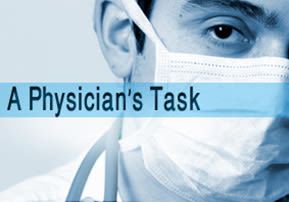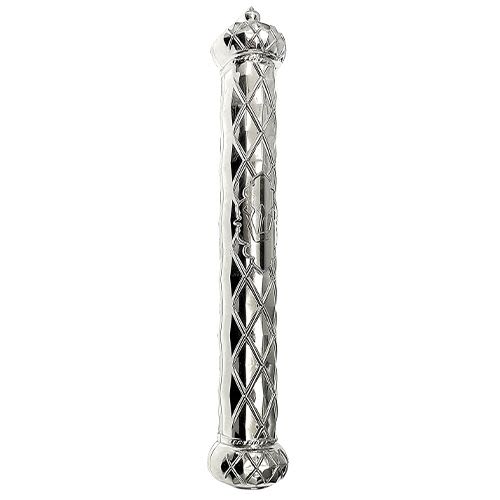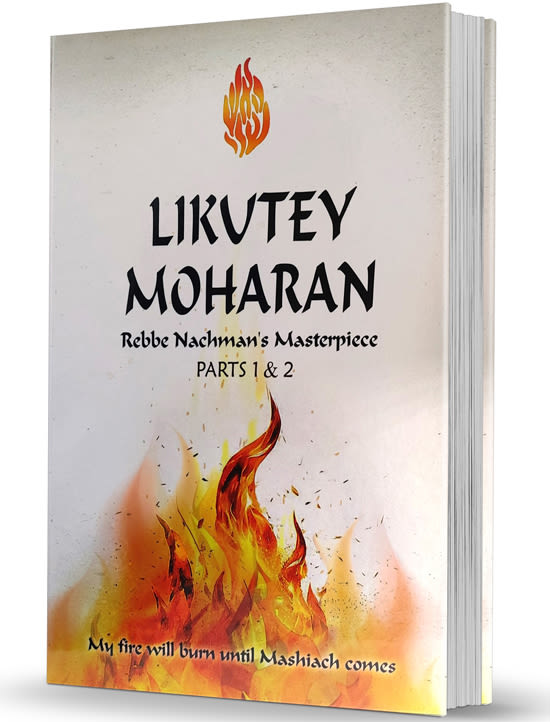
A Physician’s Task
Emuna is vital for medical professionals. Doctors should seek Divine assistance in everything they do, asking for patience, understanding, and sensitivity of their patients.

Translated by Rabbi Lazer Brody
Refua, Part 4
The main thing is emuna
 Rebbe Nachman of Breslev teaches (Likutei Moharan II:5) that there are certain illnesses that result from a lack of emuna. Such illnesses can’t be cured by physical means, only by intense prayer, teshuva, and strengthening emuna.
Rebbe Nachman of Breslev teaches (Likutei Moharan II:5) that there are certain illnesses that result from a lack of emuna. Such illnesses can’t be cured by physical means, only by intense prayer, teshuva, and strengthening emuna.People of Compassion
Anyone in the medical field must know that he or she performs a lofty task in the world. Usually, those who choose a career in medicine are people of compassion. The characteristics of mercy and compassion combined with the desire to aid humanity are wonderful incentives for learning medicine.
Nevertheless, physicians must avoid the pitfall of arrogance and remember that they are only messengers of healing, for Hashem alone decides who will live and who will die. Hashem also decides how much a person will suffer and whether he or she will be cured or not.
A physician must pray daily before he begins his day’s work that Hashem will help him be a worthy emissary. His prayers should also include a special request that he merit being an agent of healing, and not an agent of death, Heaven forbid, for a doctor’s slightest mistake or misjudgment can have tragic or even fatal results. Therefore, medical professionals should always plead to Hashem for Divine assistance in everything they do. They should also ask for patience, understanding, and a sensitivity of their patients.
There is no despair!
Our sages said that physicians are granted a Divine license to heal. That doesn’t give them license to discourage or dishearten patients. In many cases, doctors give patients and the families members of patients a pessimistic outlook and a feeling of hopelessness. Telling a patient that he only has so much time to live is a terrible mistake.
Medical research shows that optimism and a happy attitude play an important role in healing, recovery, and resistance to disease. Such nuances as laughter therapy have reportedly helped cure a number of ailments. No wonder that Rebbe Nachman of Breslev stressed the importance of maintaining happiness and avoiding sadness and depression at all costs. Rebbe Nachman emphasizes that sickness and disease are the result of a breakdown in happiness (see Likutei Moharan II:24). Since emuna leads to happiness, emuna facilitates recovery from sickness and ailments.
Therefore, a doctor must avoid saddening or discouraging a patient. Indeed, one of his most important tasks is encouraging a patient. A doctor’s word of encouragement carries far more weight than a layman’s word. A doctor should also use his good influence to help reinforce his patient’s emuna. Such spiritual and emotional support is inestimably beneficial to every patient.
The prognosis
The claim that a doctor must give patients truthful assessments of their situation is a fallacy. A patient shouldn’t be robbed of his hopes to recover. And, even if the sick person is destined to die, he should still be surrounded with optimism and encouragement.
Those doctors who frighten and discourage patients, especially those doctors who forecast how long an apparent terminally-ill patient has to live, are actually robbing them of any chance for recovery.
Hashem doesn’t reveal the day of one’s death, for such knowledge could have a detrimental effect on a person. If Hashem hides the day of death, how can a mortal be presumptuous enough to think he knows it? Negative prognoses are sometimes completely inaccurate.
Even in apparently terminal cases, a gloomy forecast robs the patient of his right to die with a feeling of optimism and faith in his heart. The doom prognosis leads to a bitter death accompanied by feelings of despair, bewilderment, and even anger at Hashem, Heaven forbid. When doctors say that the end is near, they deny patients their lone lifeline – emuna – by sealing their fate.
Stop and think for a moment: who says that the patient’s condition won’t make a sudden or dramatic change for the better? We’ve all heard of clinically-dead people that have come back to life! Are the doctors G-d, that they know what has been decreed on each patient? Hashem can change anything in the world from one moment to the next. Therefore, a sick person can recover in spite of all the doctors’ negative predictions.
A patient’s tiniest commitment to teshuva, to self-improvement, or to a mitzvah such as giving money to charity can lead to recovery where natural methods have failed.
In all fairness to the doctors, sometimes the patient’s family members put tremendous pressure on them, demanding to be told the “truth”. In such situations, a doctor should be cautious and say that according to natural circumstances, the situation seems critical, but experience has proven that Hashem’s intervention can alter the picture from one moment to the next and override any natural laws.
The best advice
A physician with emuna knows that a patient’s condition can change from one moment to the next. It’s enough that the family gives the patient’s name to a tzaddik, and the tzaddik starts praying for the patient or performs a pidyon nefesh for the patient. The opposite is also true: a patient can feel better and then renege on a commitment or fall from emuna and then suddenly relapse.
Either way, a physician should avoid giving gloomy forecasts: if Hashem decides to revive the patient, then the physician will lose face. On the other hand, if the physician is accurate, what does anyone gain? By scaring the patient – even truthfully – the physician is guilty of Onaat devarim, the Torah transgression of causing anguish to another human being. The “truth” could have made the patient suffer even more by losing hope and falling into despair.
The best advice for physicians is therefore to avoid saying anything of a committal nature, even if the patient’s family applies tons of pressure. There are plenty of verbal escape routes, such as “it’s too early to tell” or “we don’t have enough information to make an accurate prognosis.”
There are situations when a doctor wants to force his opinion on the patient in regards to a certain treatment, medicine, or operation. This is also a mistake. Even if the doctor is convinced that his recommendations are accurate, the patient must not be deprived of his free choice. Even though the doctor undoubtedly wants to help the patient, he shouldn’t dramatize his own opinions by pressuring the patient.
In summary, only Hashem decides the fate of each patient. The doctor’s task is to be a worthy emissary of Divine Will and Providence, and pray that he’ll be fortunate enough to be an agent of healing and not of death.
A physician should therefore tell a patient, “I’ll do my best, but you should know that your health doesn’t depend on me; that’s why you should do your part – strengthen your emuna in trust in Hashem! No matter what the outcomes of tests are, there are many surprises in medicine and Hashem can override any natural circumstance, as difficult as it may seem. I pray that Hashem should give me the best advice in regards to your case, but you can contribute so much to your own recovery with prayer, charity, teshuva, and emuna. If we work together, hopefully Hashem will grant you a full and speedy recovery.”
To be continued.












Tell us what you think!
Thank you for your comment!
It will be published after approval by the Editor.